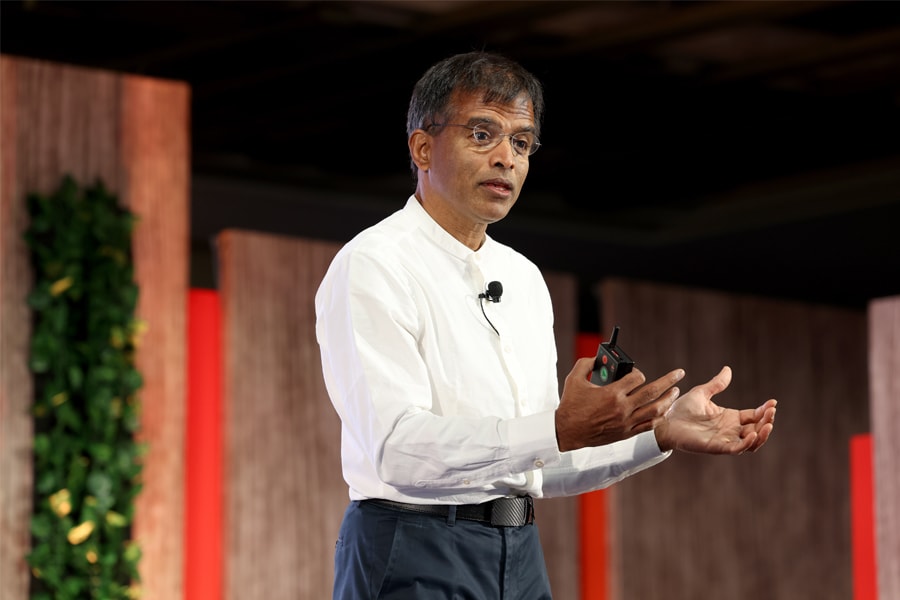
There is no day that I wake up and say, 'I wish I didn't have to teach today': Aswath Damodaran
One of the greatest professors in the world of finance and investing on why he chose to be a teacher and not an investment banker, and what he has learnt from market cycles over the past four decades
 Aswath Damodaran, professor of finance, NYU Stern School of Business
Image: Alexander Tamargo/Getty Images for Vox Media
Aswath Damodaran, professor of finance, NYU Stern School of Business
Image: Alexander Tamargo/Getty Images for Vox Media
In a teaching career spanning around four decades, Aswath Damodaran, professor of finance, NYU Stern School of Business, has received numerous awards and accolades. Notably, year after year, he has been voted ‘Professor of the Year’ by the graduating class of MBA students. Damodaran teaches corporate finance and valuation, and his MBA batch comprises 350 students. His classes are so popular that they are held in the amphitheatre. His joy for teaching explains why students ambush him at every opportunity after class—at the gym, at the cafeteria—to get his insights on all things topical in the world of finance and investing.
“I'm not a professor, I'm not a researcher, I'm a teacher first and foremost,” the widely respected valuation guru says in an interview on Forbes India Pathbreakers. In a free-wheeling conversation, he talks about the craft of valuation, disruptive trends, and his learnings over the 40 years of market ups and downs. This is the first of a multi-part series. Edited excerpts:
Teaching vs investment banking: ‘I have a passion that happens to be my job’
The big decisions in your life are often made by accident. It was actually the very last quarter of my MBA programme. I think I had a job lined up at an investment bank and, as you said, it would have been on the ground floor of what was then going to be a huge growth business. I needed money because I was running out of cash. So, I agreed to be a teaching assistant in an accounting class. I don't even like accounting. I walked into that first session and 15 minutes in, I knew that this was what I wanted to do with the rest of my life.I tell people, look, there are moments in your life where you get, I'm not even sure how to describe them, but messages from God, saying, this is what you were meant to do. I'm not saying I'm a vessel for religious messages, but I knew then that this was what I wanted to do with the rest of my life. So, after that session was done, I walked up to the finance department—as I looked across all the different classes I'd taken, finance seemed to be the most interesting, the most fun—and said, I'd like to do a PhD, because that was the entry to being a teacher in finance. I'm not a professor, I'm not a researcher, I'm a teacher first and foremost, and that was my entry point to teaching.
I think even if you take a first-level economics class, you're told the objective in your life is to maximise utility. It's not to maximise wealth. It's not to maximise income. It's to maximise the happiness you feel over the course of your life. I have a job I love. I don't even describe it as a job. I have a passion that happens to be my job. There is no day that I wake up and say, I wish I didn't have to teach today. When you have something that truly brings together your passion and your livelihood, why would you ever want to go explore something else?







